Depression isn’t just a personal struggle! It’s a global health challenge that touches nearly every family, community, and workplace. To grasp the scale of its impact, let’s look at the numbers:
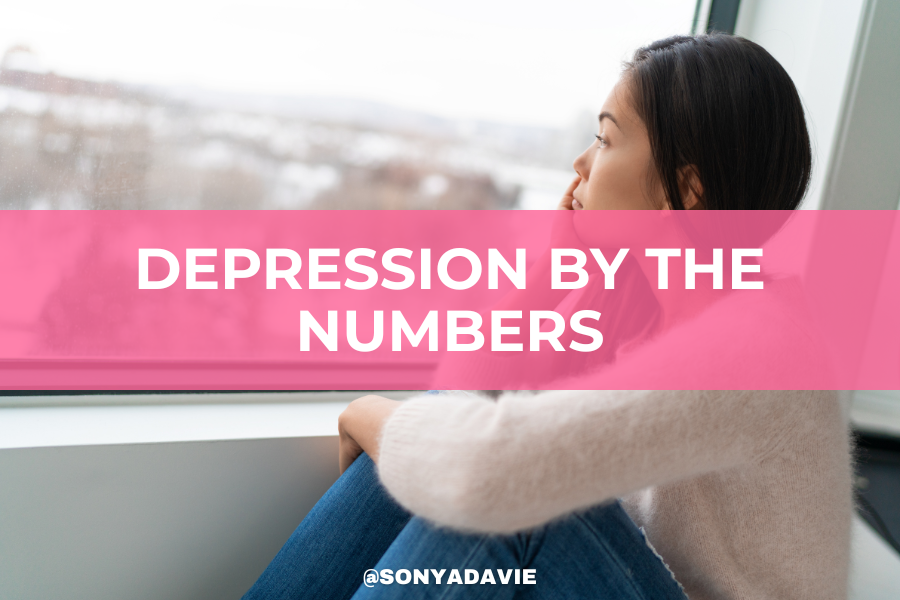
- 280 million people worldwide are living with depression. (Source: WHO)
- More recently, a 2025 CDC report notes that in 2023, more than 1 in 10 U.S. adults took prescription medication for depression, with women (15.3 %) over twice as likely as men (7.4 %) to do so. (Source: CDC)
Despite decades of prescribing serotonin-influencing medications, depression remains one of the leading causes of disability worldwide.
Since the 1980s, the Serotonin Hypothesis, the idea that low serotonin causes depression, has been heavily marketed as the root explanation. But science now challenges this claim.
A 2023 analysis of 17 studies concluded:
“There is no convincing evidence that depression is associated with, or caused by, lower serotonin concentrations or activity.” (Source)
If serotonin imbalance isn’t the full story, what else might explain rising rates of depression?
Each October, we recognize National Depression and Mental Health Screening Month, a time to raise awareness, encourage screenings, and connect people with the support they need.
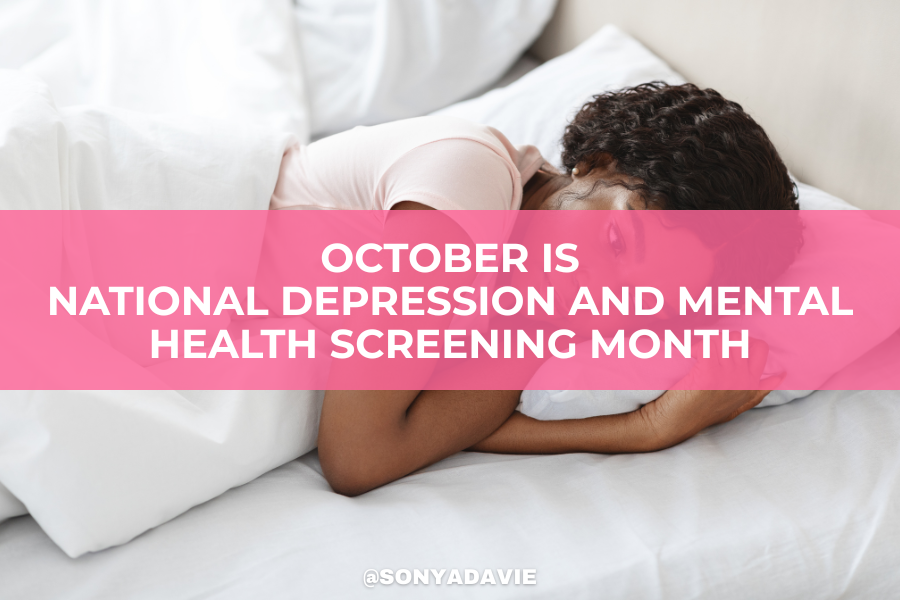
Screenings are a valuable first step, helping to catch signs of depression that might otherwise go unnoticed.
But here’s the truth: depression isn’t always reflected in standard screenings. For some, the underlying causes may be less obvious, like nutrient deficiencies, diet patterns, or lifestyle factors that don’t appear on a questionnaire.
This month is the perfect opportunity to broaden this conversation. When we move beyond quick fixes and consider the whole person, mind, body, and nutrition, we open the door to deeper, more lasting mental wellness.
Continuing with this, here’s more insight on the link between nutrition and depression… I truly believe this is something you need to check out!
The Overlooked Link Between Nutrition and Depression
What you eat and what your body actually absorbs can directly affect your brain. Poor nutrition doesn’t just show up as low energy or physical symptoms; it can also influence your mood, neurotransmitter balance, and cognitive function.
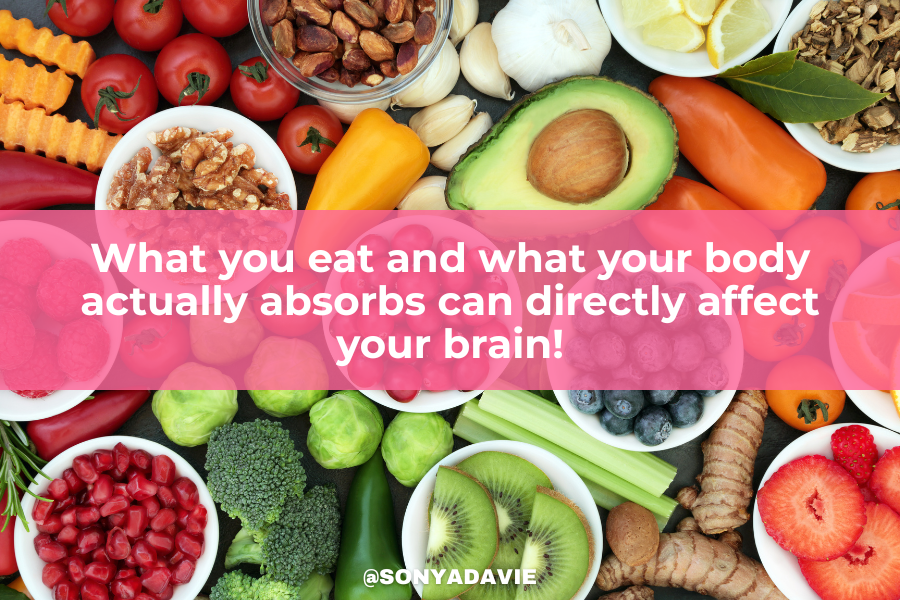
The groundbreaking SMILES Trial (2017) proved this connection. Participants who improved their diets by adding more whole foods, vegetables, healthy fats, and lean proteins experienced significant reductions in depression symptoms compared to those who didn’t change their eating habits.
This was one of the first studies to prove that food can truly be medicine for your mind.
Vegetarian Diets and Depression: What You Should Know
Plant-based diets are on the rise, but what happens if key nutrients are lacking?
While plant-based eating can offer many health benefits, without careful planning, it may lead to nutrient gaps that impact mental well-being.
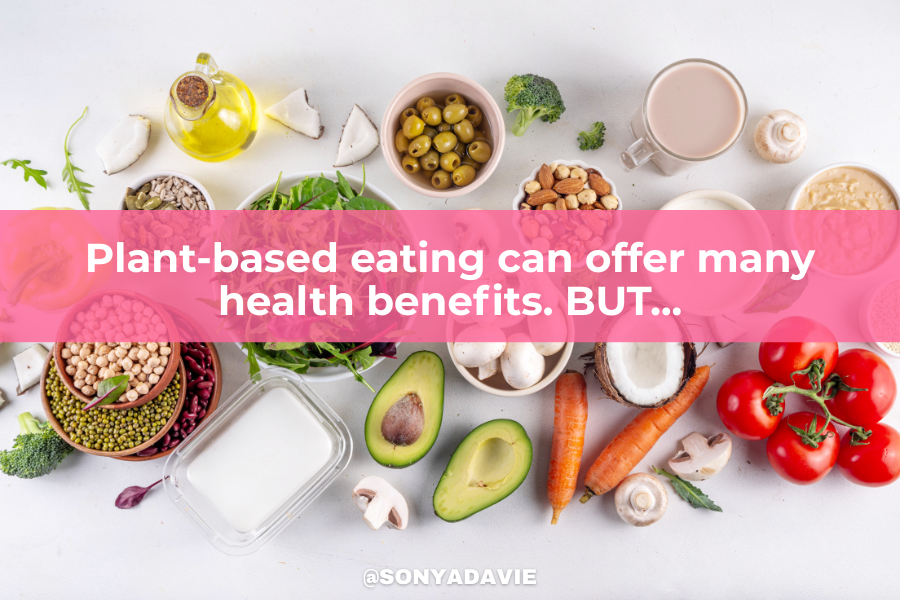
A 2022 Brazilian study of over 14,000 participants found that vegetarians were twice as likely to experience depression compared to meat eaters. Additionally, a review of multiple studies revealed that vegetarians and vegans are often deficient in nutrients essential for brain health and emotional resilience, including:
- Vitamin B2, B3, B12
- Vitamin D
- Iodine
- Zinc
- Calcium
- Potassium
- Selenium
⚠️ Important note:
This doesn’t mean plant-based diets are “bad” or inherently unhealthy. With mindful planning and supplementation, they can absolutely support your wellness. The key is to be proactive about testing and filling in nutrient gaps before they affect your mood.
This Diet May Affect Mental Health: Low-Calorie Diets and Depression
You may have heard “eat less, move more,” but restricting calories too much can actually harm your mental health.
A 2025 study in BMJ Nutrition, Prevention & Health analyzed over 28,000 U.S. adults and found:
- People on low-calorie diets scored higher on depression questionnaires than those not restricting calories.
- The effect was stronger in men (+0.50 PHQ-9 points) and those with higher BMI (+0.46).
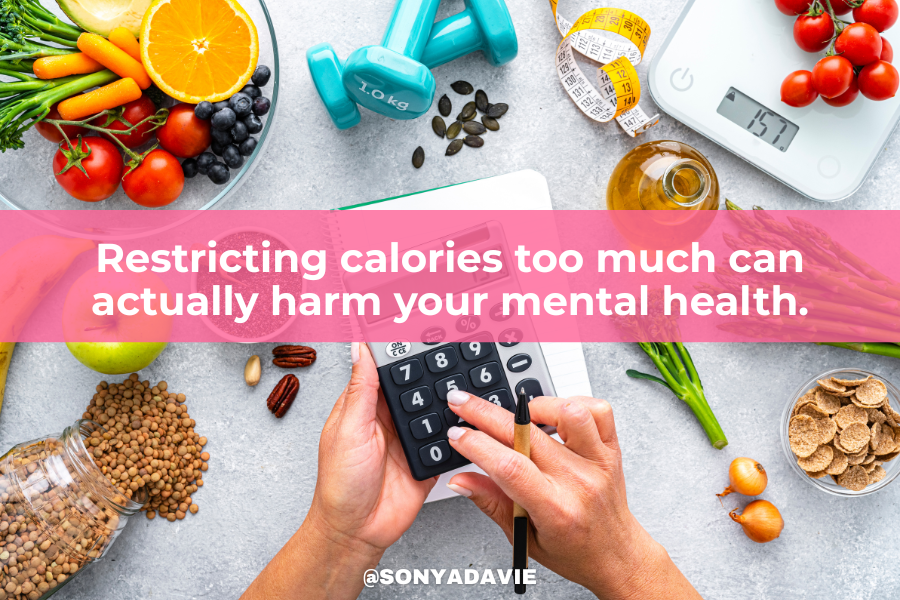
Why? Because calories don’t equal nutrients. Restricting food without focusing on nutrient quality can deprive your brain of what it needs to function.
👉 Bottom line:
Chasing calorie cuts alone while ignoring nutrient density may increase your risk of depression. True health isn’t just about eating less… It’s about eating well.
Why Nutrition is Often Overlooked in Depression Care
Despite nutrition’s profound impact on mental health, most physicians receive very little training in nutrition.
According to the National Academy of Sciences, U.S. medical schools provide fewer than 20 hours of nutrition education in four years of training.
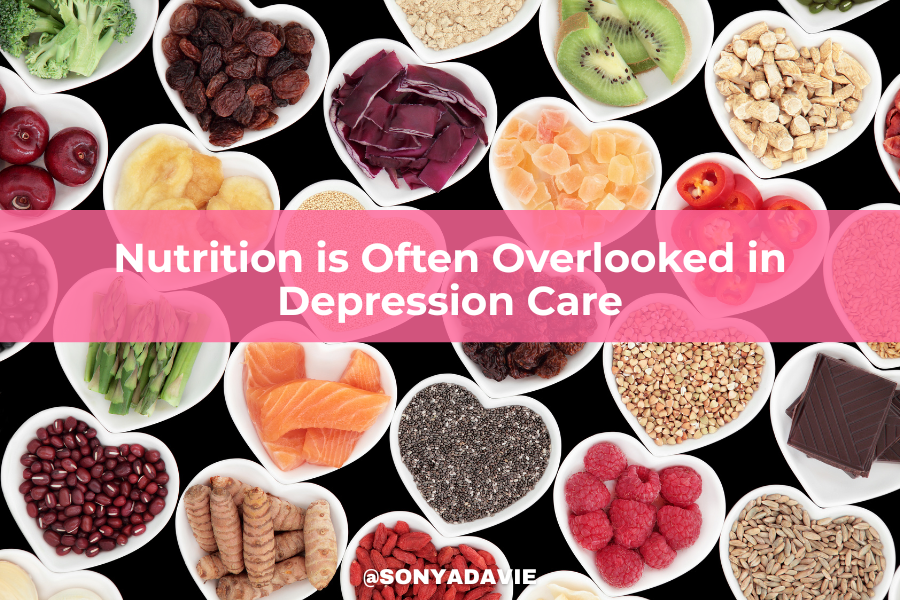
This gap often means patients are prescribed medication without ever having basic nutrient testing or considering whether poor nutrition may be driving their symptoms.
In fact, antidepressants often work best when the body has the right nutrient support. Without it, some people may find their medication less effective over time, leading to increased dosages that might have been avoided with a more holistic approach.
Deficiencies in vitamin D, B12, zinc, or omega-3 fatty acids, for example, can mimic symptoms of depression, but many people see improvement simply by addressing these nutrient gaps through proper nutrition.
Biggest Takeaway?
Before You Medicate, Investigate ✨
Depression isn’t one-size-fits-all. While antidepressants may help some people, for many, nutrition is one of the most underutilized yet powerful tools for supporting mental health.
This National Depression and Health Screening Month, ask yourself:
- Could my diet be fueling or fighting my depression symptoms?
- Do I need nutrient testing before starting medication?
- Am I truly nourishing my brain?
Before you dive into solutions or reach for medication, it’s worth pausing to reflect on what your body and brain truly need. Sometimes, the key to feeling better isn’t found in a prescription… It’s found in understanding your unique needs, nourishing your body, and uncovering root causes.
As a mental health care provider, I’ve seen this firsthand in my clients’ stories. Their experiences consistently show that personalized approaches considering nutrition, lifestyle, and individual health factors make all the difference.
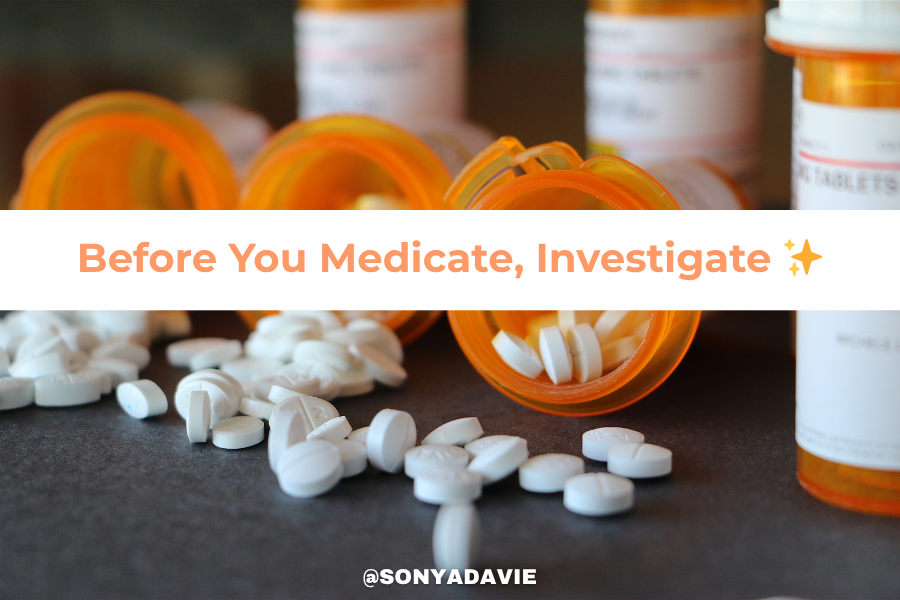
This isn’t just theory; it’s what works in real life when we focus on you, not just a one-size-fits-all treatment.
If you’re ready to take charge of your mental health, explore holistic approaches, and learn how to support your brain and body in a personalized way, whether before or even while taking psychiatric medication, my free workshop is something you won’t want to miss!
🌿 Free Workshop: Before You Medicate – Decode the Red Flags, Reclaim Your Power
Join this virtual session to uncover the truths behind depression and take control of your mental health:
✅ Hidden root causes of depression
✅ Nutrition and mental health connections
✅ Get the key questions to ask before starting any medication
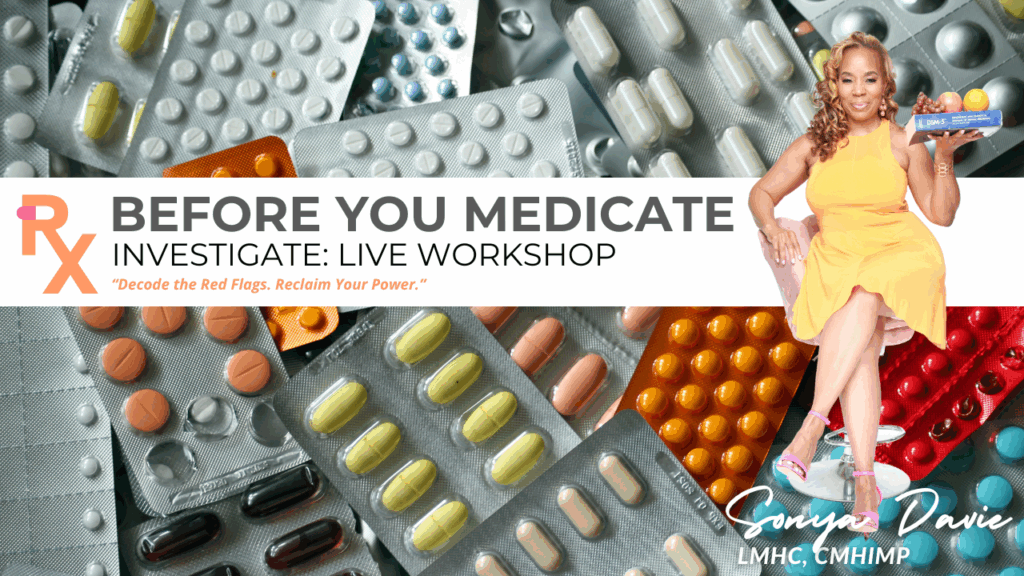
Hey there,
Your mental health deserves more than quick fixes. Before you medicate, investigate, understand, and reclaim your power. 💚
+ show Comments
- Hide Comments
add a comment